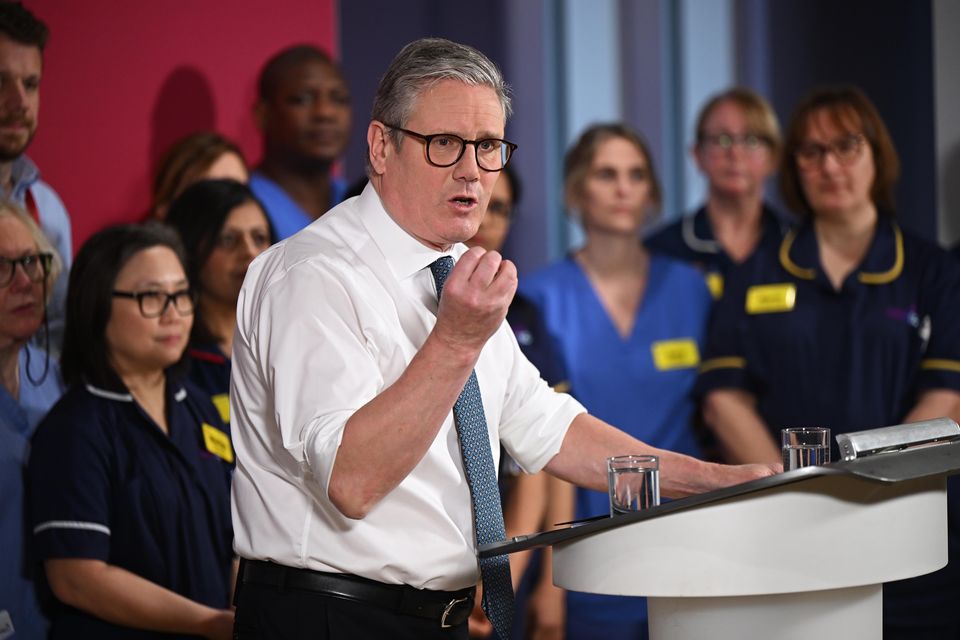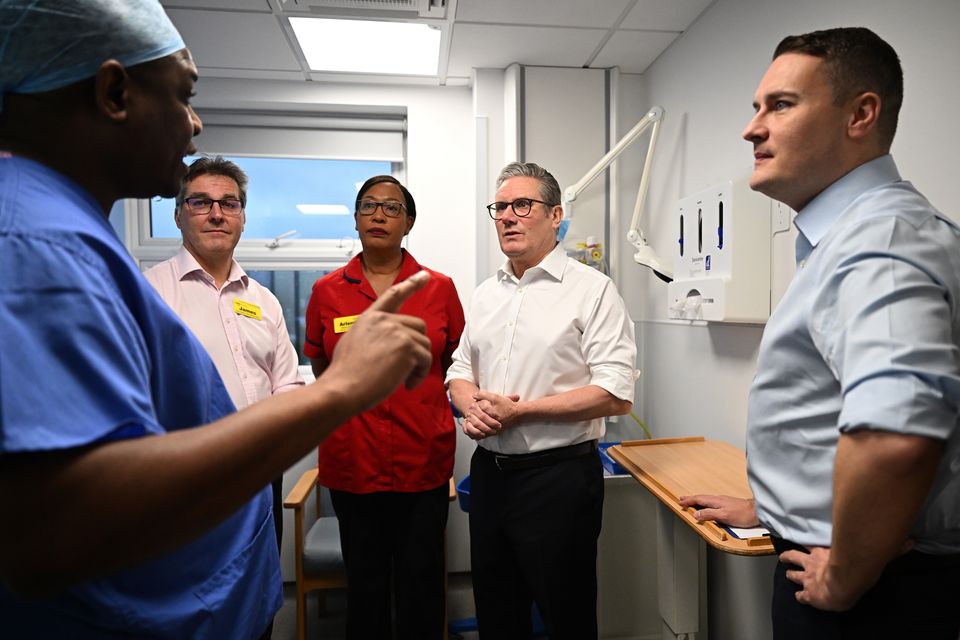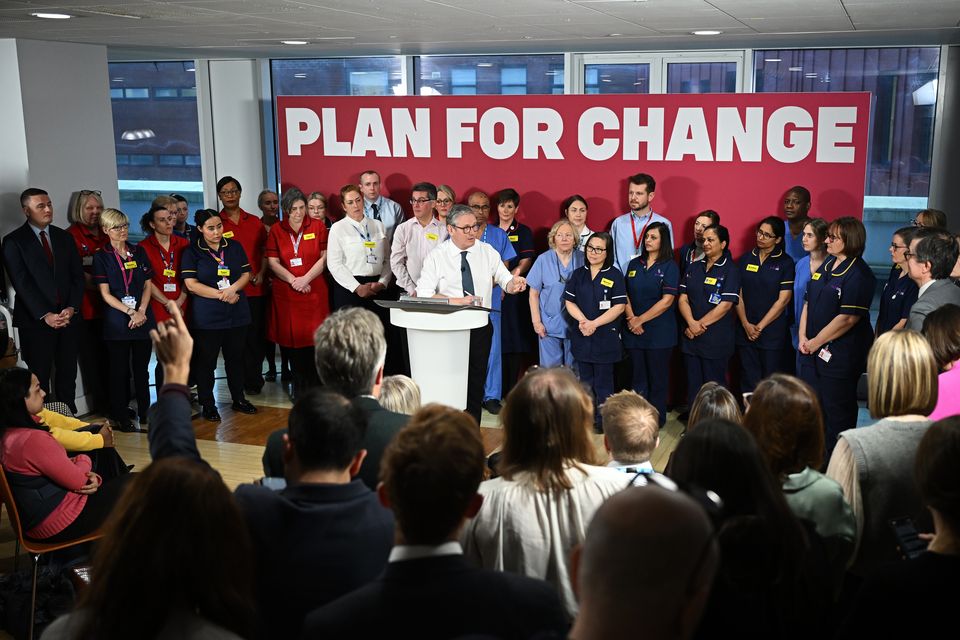Rebuilding the NHS is the “cornerstone” of rebuilding Britain, the Prime Minister said, as he pledged to fight for it “day and night”.
Sir Keir Starmer unveiled more detail about his plans for tackling NHS waiting lists, with the aim of slashing the number of people waiting longer than 18 weeks for NHS treatment in England by nearly half a million over the next year.
During a speech in Surrey, the Prime Minister said 2025 “is about rebuilding Britain and rebuilding our NHS is the cornerstone of that”.
Prime Minister Sir Keir Starmer delivers a speech on his plans for the NHS during a visit to the Elective Orthopaedic Centre in Epsom, Surrey (Leon Neal/PA)
He added: “We will, of course, protect the principles we all cherish – that you will work to every day – care free at the point of use, treatment according to need, key principles.
“But to catapult the service into the future, we need an NHS that is reformed from top to bottom, millions of extra appointments signed, sealed and delivered with the plan that we are launching here today.
“National renewal in action.”
Sir Keir said the NHS must be “hungry for innovation” but reiterated his belief that the health service cannot become a “national money pit”.
He said: “Productivity can’t (be) 11% lower than it was before the pandemic.
“Working people can’t be expected to subsidise the current levels of care with ever-rising taxes.
“That is the price of ducking reform, and I won’t stand for it.
“I believe in public service. I believe in the NHS. I’ll fight for it day and night. I’ll never stand for that.”
Under his plans, Sir Keir said the NHS must deliver convenience for patients, just as people can book holidays and find love online.
“This plan that we’re launching today is a comprehensive level of that mindset, an NHS that treats patients more quickly, that is closer to their lives, gives them the level of convenience that they take for granted in nearly every other service they use every day,” he said.
“Just think about it – every day, just a few swipes of their phone, millions of people buy food or clothes for themselves and their family, they book holidays, they even find love.
“There is no reason, no good reason, why a public, free-at-the-point-of-use NHS can’t deliver that kind of convenience. In fact, it must.”
Prime Minister Sir Keir Starmer and Health Secretary Wes Streeting meet members of staff during a visit to the Elective Orthopaedic Centre in Epsom, Surrey (Leon Neal/PA)
The Prime Minister pledged to put patients at the centre of their treatment and shift more care closer to the towns and cities where they live, which he said will make a “massive difference” to waiting times.
Meanwhile, allowing GPs to communicate directly with specialists to seek advice and diagnose people more quickly will save more than 800,000 “unnecessary” appointments and referrals every year.
Sir Keir told the medics who gathered to hear him speak that “no institution” is more important to the security of the country than the NHS.
He said: “There’s no institution more important for the security of our country than the National Health Service.
“Built by that generation eight decades ago now, it’s the embodiment of British values and humanities – fairness, equal respect.”
Prime Minister Sir Keir Starmer told the medics who gathered to hear him speak that ‘no institution’ is more important to the security of the country than the NHS (Leon Neal/PA)
The Government has said it will slash waiting times by:
– Creating a bigger network of community diagnostic centres, which provide appointments such as scans, colonoscopies and endoscopies. They will run 12 hours a day, seven days a week. The hope is to deliver up to half a million extra appointments a year.
GPs will be able to refer patients directly to these centres without requiring a prior consultation with a hospital consultant.
– Creating more surgical hubs, as championed by the Royal College of Surgeons. These deliver surgery more quickly in areas such as cataract surgery and orthopaedic operations. These hubs are not centred in hospitals, which means operations in the hubs are not cancelled to make way for emergency surgery.
– Enabling patients to book more tests and scans after work and at weekends, including through the NHS app.


